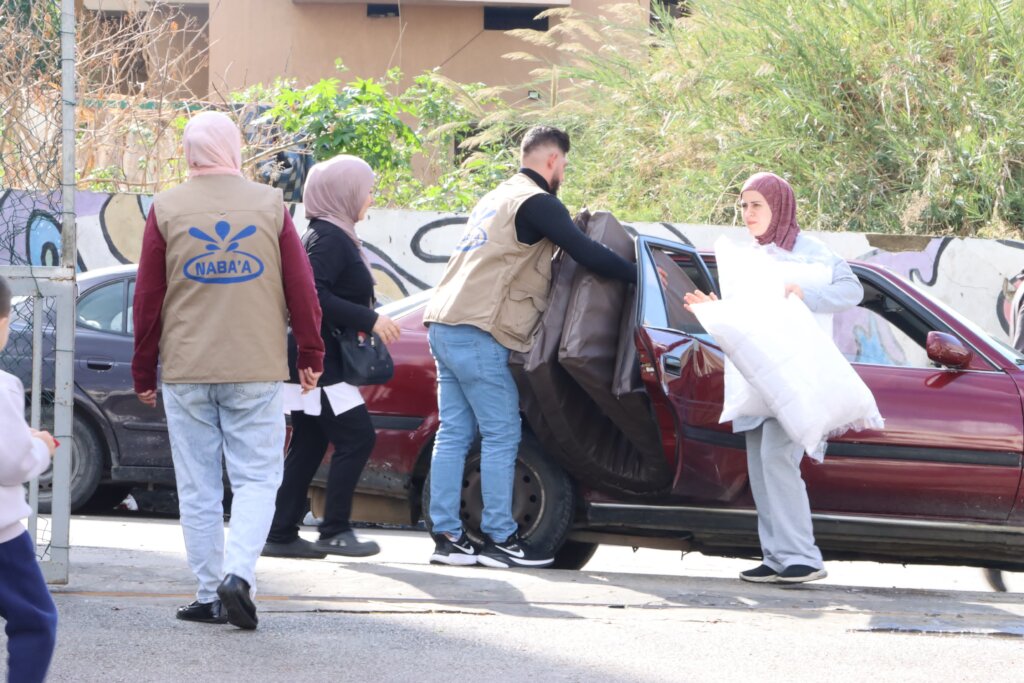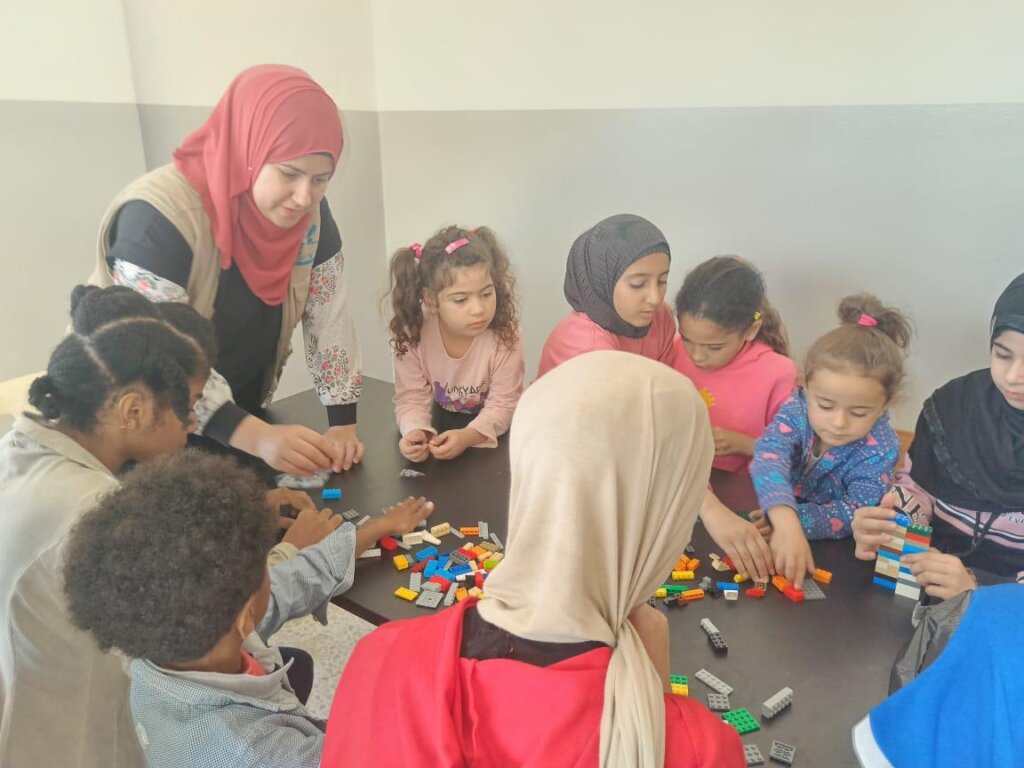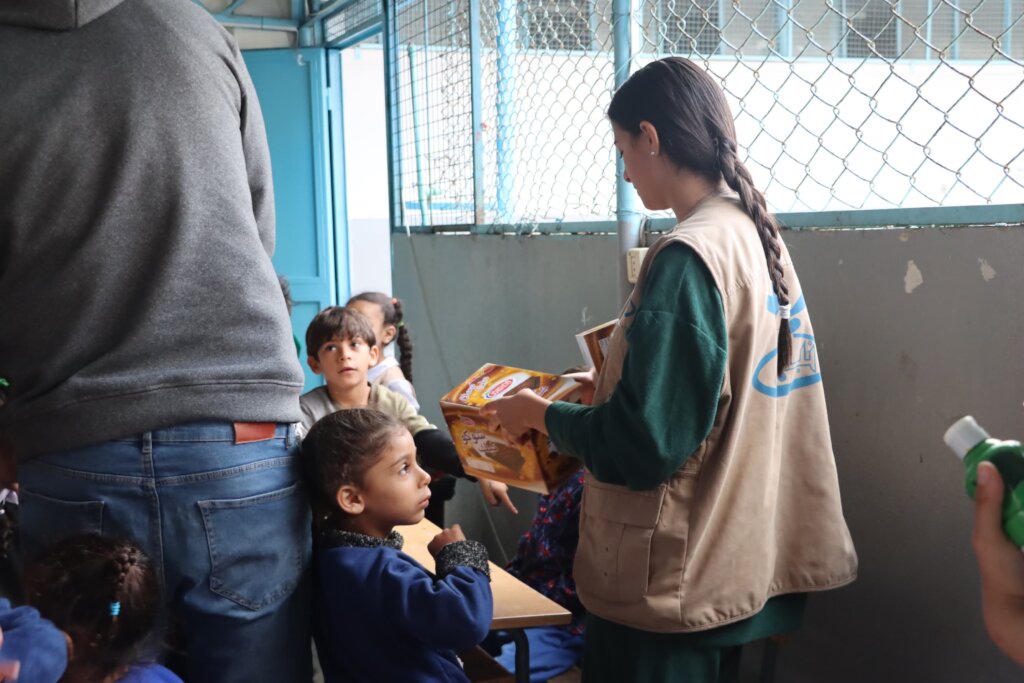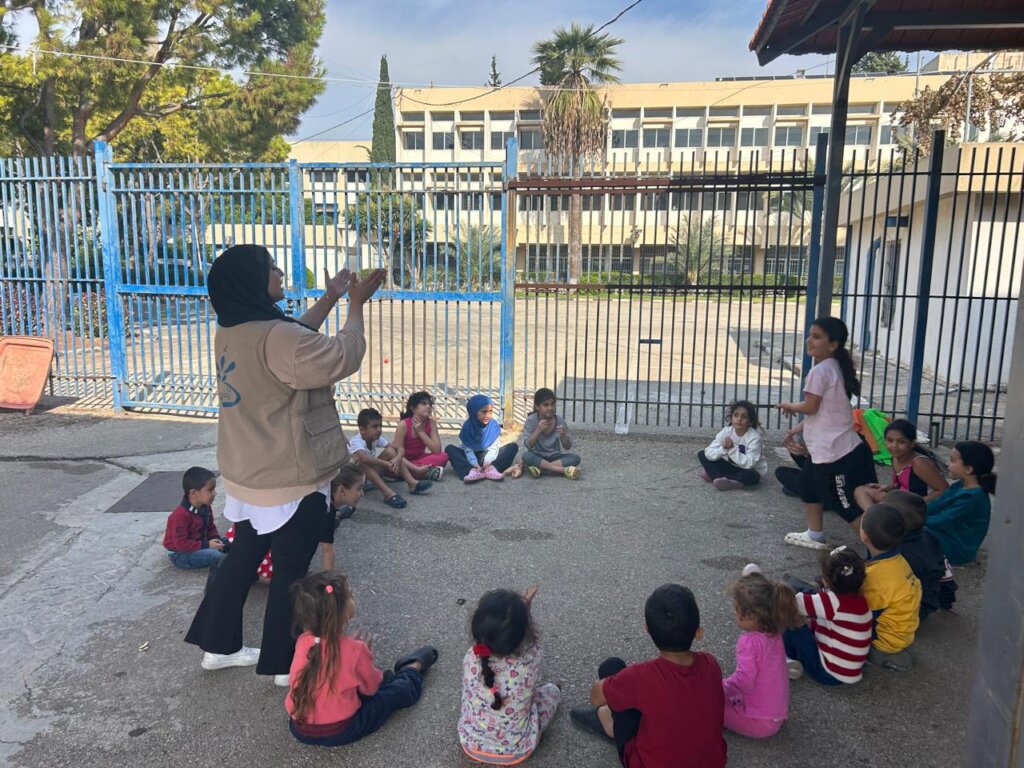Project Report
| Nov 25, 2024
Emergency Response for Female headed families
![Distribution Sleeping Materials]()
Distribution Sleeping Materials
Introduction
Amidst the escalating conflict in South Lebanon, widespread displacement has resulted in significant humanitarian needs. The intensification of airstrikes since September 2023 has led to mass evacuations, creating a desperate scenario for thousands. According to the International Organization for Migration (IOM), since October 2023, over 689,715 individuals have been displaced within Lebanon, facing loss, fear, and instability. The situation necessitates immediate and effective emergency responses to address the multifaceted challenges faced by these individuals.
Developmental Action Without Borders – Naba’a has been at the forefront of assessing and addressing the needs of displaced families. Our emergency response, detailed herein, is guided by comprehensive needs assessments and aims to alleviate the hardships faced by the internally displaced persons (IDPs) through targeted interventions.
Achievements;
To select the beneficiaries of our emergency aid, Nabaa conducted a detailed needs assessment from September 23 to October 12, 2024. The initial survey identified 1,471 IDP households, which increased to 4,689 households upon updating the assessment to reflect the continuing displacement. Our field team employed the Kobo tool to conduct surveys, which included demographic analysis, vulnerability assessment, and specific needs identification.
Beneficiaries were selected based on their displacement status, vulnerabilities (such as presence of elderly, children, or disabled members), and the lack of basic amenities in their current living conditions. The majority were found residing in temporary accommodations like rented homes, emergency shelters, or with relatives, with a notable concentration in Saida. This selection was influenced by both the urgency of needs and the feasibility of reaching the HHs amidst movement restrictions due to security concerns.
Impact
The emergency response focused on distributing 800 food kits for 800 HHs in Saida. The distribution was single-round, tailored to provide immediate relief to the families most in need.
Direct Impact
- Nutritional Support: Each food kit contained essential food items, ensuring that the recipient families could maintain an adequate nutritional intake for a month. This intervention was crucial as 93% of assessed households expressed a dire need for food assistance. Importantly, all kits were assembled in accordance with UN regulations and standards, guaranteeing that the contents were safe, nutritious, and suited to the dietary needs of the beneficiaries.
- Reduced Burden: By providing food assistance, Nabaa helped alleviate the financial pressure on hosted and hosting families - many of which are sheltered with relatives and are unable to meet their basic needs due to the loss of income and assets.
Indirect Impact
- Community Cohesion: Supporting IDPs with food assistance also indirectly aids the host families by reducing their financial burden, fostering better relations and stability within the community.
- Prevention of Secondary Displacement: By addressing one of the most pressing needs, the project helps prevent further displacement of families in search of food resources.
Conclusion
The emergency food distribution project in Saida was a critical component of Nabaa’s response to the displacement crisis triggered by the war in Lebanon. The targeted aid not only addressed the immediate nutritional needs but also contributed to stabilizing the conditions of IDP HHs during this period. This project exemplifies how focused humanitarian efforts can provide substantial relief in crisis situations, underlining the importance of timely and well-coordinated emergency responses.
Case Study
Code: Kh-Z-Ain al-Dalab
- Age: 42 years old
- Marital Status: Married, mother of five children (2 girls, 3 boys)
- Current Situation: Displaced from South Lebanon, Deir Qanun. Currently residing temporarily at the Ain al-Dalab School, a displacement center, with her daughters and two of her sons. She lost her home and livelihood, as her husband’s car repair shop that was destroyed in the war.
- Family Situation: One of her sons (20 years old) stayed in south due to difficult reasons, which increases her feelings of fear and anxiety. As a result, she suffers from severe psychological stress and she can’t stop crying. She also faces economic pressure, as they have no income to rely on.
Challenges:
- Loss of livelihood and a deep thinking of fear regarding the future, feeling insecure and afraid.
- Extreme fear and anxiety: She is deeply afraid for the life of her son who stayed in the area, which causes her constant worry and prevents her from finding peace.
- Severe psychological pressure: She finds it hard to adapt the displacement conditions and to adapt the changes in her daily life, making it difficult to her to focus or engage in daily activities.
- Recurring nightmares: She frequently wakes up from scary nightmares about her house being destroyed by a missile and the struggle for survival with her family. She always thinks about the safety of her son and the events of the conflict.
Therapeutic Interventions:
- Group Psychological Support Sessions: She participated in a group psychological support sessions aimed to share her experiences with other women in similar situations, helping her feel she’s not alone.
- Individual sessions: A series of individual sessions was scheduled to deal with severe stress and anxiety through:
- Emotional Expression: Encouraging her to openly express her feelings about her fears and thoughts concerning her life.
- Relaxation and Deep Breathing Techniques: Teaching her relaxation strategies such as deep breathing and meditation to reduce daily tension.
- Rebuilding ideas: Working to change negative thoughts that increase her fear and help shift them into more realistic, less stressful ideas.
- Practicing coping skills: She was provided with skills to control her daily stress, such as expressive writing and engaging in simple recreational activities.
Progress and Observations:
- After several sessions (12 sessions), she began to feel some relief and a gradual reduction in anxiety.
- She became more comfortable talking about her fears and emotions.
- The intensity of her nightmares decreased, and she started to have better sleep.
Future Recommendations:
- Continue with individual sessions and group psychological support sessions.
- Provide additional support to improve her overall mental health and encourage her involvement in daily activities.
- Offer financial assistance to reduce the economic pressures she is facing.
![Recreational Activities]()
Recreational Activities
![Educational activity]()
Educational activity
![PSS activities]()
PSS activities
![Share on Twitter]()
![Share on Facebook]()



